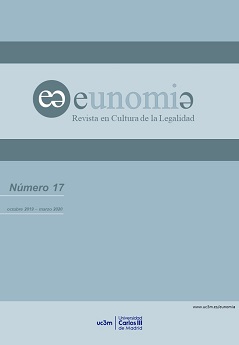Reflections on the failed same-sex marriage referendum held in Romania
Abstract
In October 2018, Romania held a referendum on the ban of same-sex marriages, which indeed had got the support of a wide majority in the Chamber of Deputies and the Senate. The call for this referendum generated the usual criticism towards the institution of the referendum itself, that points out its inconvenience when it comes to dealing with issues regarding minorities’ rights. Drawing on the Romanian experience, this paper analyses that criticism by going through the contradictions and questions that arise when it is vaguely expressed. The purpose is to compare the advantages of a parliamentary forum and referendums as decision-making tools and to insist in the need of clarifying the specific kind of popular consultation that is to be used. Finally, the writer argues in favor of preserving referendums as decisive means in the process of constitutional reform, stressing however the drawbacks that may eventually arise in case of a judicial review.
Downloads
Eunomía. Revista en Cultura de la Legalidad is a duly registered journal, with EISSN 2253-6655.
The articles published in Eunomía are –unless indicated otherwise– under a Creative Commons Attribution-No Derivative Works 3.0 Spain license. You can copy, distribute and communicate them publicly as long as you cite their author and the journal and institution that publishes them and do not make derivative works with them. The full license can be consulted at: http://creativecommons.org/licenses/by-nd/3.0/es/deed.es




